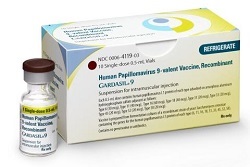 For years, Merck ($MRK) and GlaxoSmithKline ($GSK) have battled safety worries and other stigmas associated with their HPV vaccines. But this week, the companies received a piece of positive news from the European Medicines Agency, which reported that a committee found no link between the shots and two rare conditions it had been studying.
For years, Merck ($MRK) and GlaxoSmithKline ($GSK) have battled safety worries and other stigmas associated with their HPV vaccines. But this week, the companies received a piece of positive news from the European Medicines Agency, which reported that a committee found no link between the shots and two rare conditions it had been studying.
After initiating a safety review of HPV vaccines Gardasil/Gardasil 9 from Merck and Cervarix from GlaxoSmithKline in July, an EMA committee said this week it found no link between the shots and complex regional pain syndrome (CRPS) or postural orthostatic tachycardia syndrome (POTS). CRPS is a chronic pain affecting the limbs and POTS is a condition in which a person's heart rate increases abnormally after sitting or standing.
With the news, the regulator didn't amend the label for the vaccines, which have thus far failed to live up to financial expectations, in part due to safety concerns and a sex-related stigma. So far, 80 million people have received the jabs, which are designed to protect against cervical cancer caused by HPV and other HPV-related conditions. After early sales estimates said the vaccines could bring in $4 billion to $10 billion annually, reality has put a bit of a damper on expectations.
In the third quarter, Merck's Gardasil/Gardasil 9 franchise reeled in $625 million, a 6% increase over the same period last year, while Glaxo's Cervarix brought in $38 million, a 10% decrease from last year.
Merck has marketed Gardasil in Europe since 2006, and this year it received an EMA approval for the shot's follow-up, Gardasil 9, which protects against 9 HPV types. The new vaccine is expected to reach $1.9 billion in annual sales, but much of that is expected to come at the expense of its predecessor. The FDA approved Gardasil 9 last December.
The review recognized that in some markets, 90% of the recommended age groups had been vaccinated with the jabs, adding that "the benefits of HPV vaccines therefore continue to outweigh their risks."
- here's the release